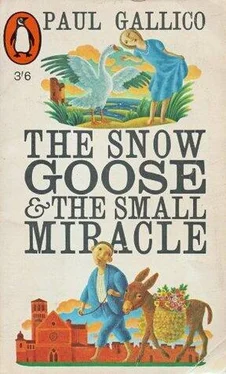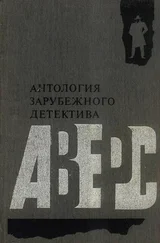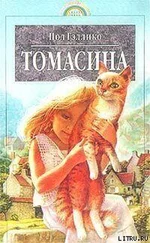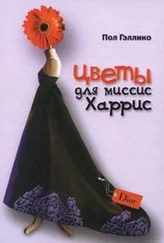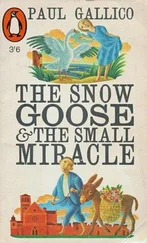Пол Гэллико - The Small Miracle
Здесь есть возможность читать онлайн «Пол Гэллико - The Small Miracle» весь текст электронной книги совершенно бесплатно (целиком полную версию без сокращений). В некоторых случаях можно слушать аудио, скачать через торрент в формате fb2 и присутствует краткое содержание. Год выпуска: 2013, ISBN: 2013, Издательство: Penguin Books Ltd, Жанр: Детская проза, на английском языке. Описание произведения, (предисловие) а так же отзывы посетителей доступны на портале библиотеки ЛибКат.
- Название:The Small Miracle
- Автор:
- Издательство:Penguin Books Ltd
- Жанр:
- Год:2013
- ISBN:978-0-241-96725-6
- Рейтинг книги:5 / 5. Голосов: 1
-
Избранное:Добавить в избранное
- Отзывы:
-
Ваша оценка:
- 100
- 1
- 2
- 3
- 4
- 5
The Small Miracle: краткое содержание, описание и аннотация
Предлагаем к чтению аннотацию, описание, краткое содержание или предисловие (зависит от того, что написал сам автор книги «The Small Miracle»). Если вы не нашли необходимую информацию о книге — напишите в комментариях, мы постараемся отыскать её.
The Small Miracle — читать онлайн бесплатно полную книгу (весь текст) целиком
Ниже представлен текст книги, разбитый по страницам. Система сохранения места последней прочитанной страницы, позволяет с удобством читать онлайн бесплатно книгу «The Small Miracle», без необходимости каждый раз заново искать на чём Вы остановились. Поставьте закладку, и сможете в любой момент перейти на страницу, на которой закончили чтение.
Интервал:
Закладка:
Paul Gallico
The Small Miracle
With drawings by Edgar Norfield
The beautiful setting of Assisi is clearly essential for the purposes of this story. But the characters exist only in the imagination of the author and are not based upon any real persons. They are delineated as they are for purely literary reasons.
To St Francis
a man among saints
Approaching Assisi via the chalky, dusty road that twists its way up Monte Subasio, now revealing, now concealing the exquisite little town, as it winds its way through olive and cypress groves, you eventually reach a division where your choice lies between an upper and a lower route.
If you select the latter, you soon find yourself entering Assisi through the twelfth-century archway of the denticulated door of St Francis. But if, seduced by the clear air, the wish to mount even closer to the canopy of blue Italian sky and expose still more of the delectable view of the rich Umbrian valley below, you choose the upper way, you and your vehicle eventually become inextricably entangled in the welter of humanity, oxen, goats, bawling calves, mules, fowl, children, pigs, booths and carts gathered at the market place outside the walls.
It is here you would be most likely to encounter Pepino, with his donkey Violetta, hard at work, turning his hand to anything whereby a small boy and a strong, willing beast of burden could win for themselves the crumpled ten and twenty lira notes needed to buy food and pay for lodging in the barn of Niccolo the stableman.
Pepino and Violetta were everything to each other. They were a familiar sight about Assisi and its immediate environs – the thin brown boy, ragged and barefooted, with the enormous dark eyes, large ears, and close-cropped, upstanding hair, and the dust-coloured little donkey with the Mona Lisa smile.
Pepino was ten years old and an orphan, his father, mother and near relatives having been killed in the war. In self-reliance, wisdom and demeanour he was, of course, much older, a circumstance aided by his independence, for Pepino was an unusual orphan in that having a heritage he need rely on no one. Pepino’s heritage was Violetta.
She was a good, useful and docile donkey, alike as any other with friendly, gentle eyes, soft taupe-coloured muzzle, and long, pointed brown ears, with one exception that distinguished her. Violetta had a curious expression about the corners of her mouth, as though she were smiling gently over something that amused or pleased her. Thus, no matter what kind of work, or how much she was asked to do, she always appeared to be performing it with a smile of quiet satisfaction. The combination of Pepino’s dark lustrous eyes and Violetta’s smile was so harmonious that people favoured them and they were able not only to earn enough for their keep but, aided and advised by Father Damico, the priest of their parish, to save a little as well.

There were all kinds of things they could do – carry loads of wood or water, deliver purchases carried in the panniers that thumped against Violetta’s sides, hire out to help pull a cart mired in the mud aid in the olive harvest, and even, occasionally, help some citizen who was too encumbered with wine to reach his home on foot, by means of a four-footed taxi with Pepino walking beside to see that the drunkard did not fall off.
But this was not the only reason for the love that existed between boy and donkey, for Violetta was more than just the means of his livelihood. She was mother to him, and father, brother, playmate, companion, and comfort. At night, in the straw of Niccolo’s stable, Pepino slept curled up close to her when it was cold, his head pillowed on her neck.
Since the mountainside was a rough world for a small boy, he was sometimes beaten or injured, and then he could creep to her for comfort and Violetta would gently nuzzle his bruises. When there was joy in his heart, he shouted songs into her waving ears; when he was lonely and hurt, he could lean his head against her soft, warm flank and cry out his tears.
On his part, he fed her, watered her, searched her for ticks and parasites, picked stones from her hoofs, scratched and groomed and curried her, lavished affection on her, particularly when they were alone, while in public he never beat her with the donkey stick more than was necessary. For this treatment Violetta made a god of Pepino, and repaid him with loyalty, obedience and affection.
Thus, when one day in the early spring Violetta fell ill, it was the most serious thing that had ever happened to Pepino. It began first with an unusual lethargy that would respond neither to stick nor caresses, nor the young, strident voice urging her on. Later Pepino observed other symptoms and a visible loss of weight. Her ribs, once so well padded, began to show through her sides. But most distressing, either through a change in the conformation of her head, due to growing thinner, or because of the distress of the illness, Violetta lost her enchanting and lovable smile.
Drawing upon his carefully hoarded reserves of lira notes and parting with several of the impressive denomination of a hundred, Pepino called in Dr Bartoli, the vet.
The vet. examined her in good faith, dosed her, and tried his best; but she did not improve and, instead, continued to lose weight and grow weaker. He hummed and hawed then and said, ‘Well, now, it is hard to say. It might be one thing, such as the bite of a fly new to this district, or another, such as a germ settling in the intestine.’ Either way, how could one tell? There had been a similar case in Foligno and another in a far-away town. He recommended resting the beast and feeding her lightly. If the illness passed from her and God willed, she might live. Otherwise, she would surely die and there would be an end to her suffering.

After he had gone away, Pepino put his cropped head on Violetta’s heaving flank and wept unrestrainedly. But then, when the storm, induced by the fear of losing his only companion in the world, had subsided, he knew what he must do. If there was no help for Violetta on earth, the appeal must be registered above. His plan was nothing less than to take Violetta into the crypt beneath the lower church of the Basilica of St Francis, where rested the remains of the Saint who had so dearly loved God’s creations, including all the feathered and the four-footed brothers and sisters who served Him. There he would beg St Francis to heal her. Pepino had no doubt that the Saint would do so when he saw Violetta.
These things Pepino knew from Father Damico, who had a way of talking about St Francis as though he were a living person who might still be encountered in his frayed cowl, bound with a hemp cord at the middle, merely by turning a corner of the Main Square in Assisi or by walking down one of the narrow, cobbled streets.
And besides, there was a precedent. Giani, his friend, the son of Niccolo the stableman, had taken his sick kitten into the crypt and asked St Francis to heal her, and the cat had got well – at least half well, anyway, for her hind legs still dragged a little; but at least she had not died. Pepino felt that if Violetta were to die, it would be the end of everything for him.
Thereupon, with considerable difficulty, he persuaded the sick and shaky donkey to rise, and with urgings and caresses and minimum use of the stick drove her through the crooked streets of Assisi and up the hill to the Basilica of St Francis. At the beautiful twin portal of the lower church he respectfully asked Fra Bernard, who was on duty there, for permission to take Violetta down to St Francis, so that she might be made well again.
Читать дальшеИнтервал:
Закладка:
Похожие книги на «The Small Miracle»
Представляем Вашему вниманию похожие книги на «The Small Miracle» списком для выбора. Мы отобрали схожую по названию и смыслу литературу в надежде предоставить читателям больше вариантов отыскать новые, интересные, ещё непрочитанные произведения.
Обсуждение, отзывы о книге «The Small Miracle» и просто собственные мнения читателей. Оставьте ваши комментарии, напишите, что Вы думаете о произведении, его смысле или главных героях. Укажите что конкретно понравилось, а что нет, и почему Вы так считаете.
